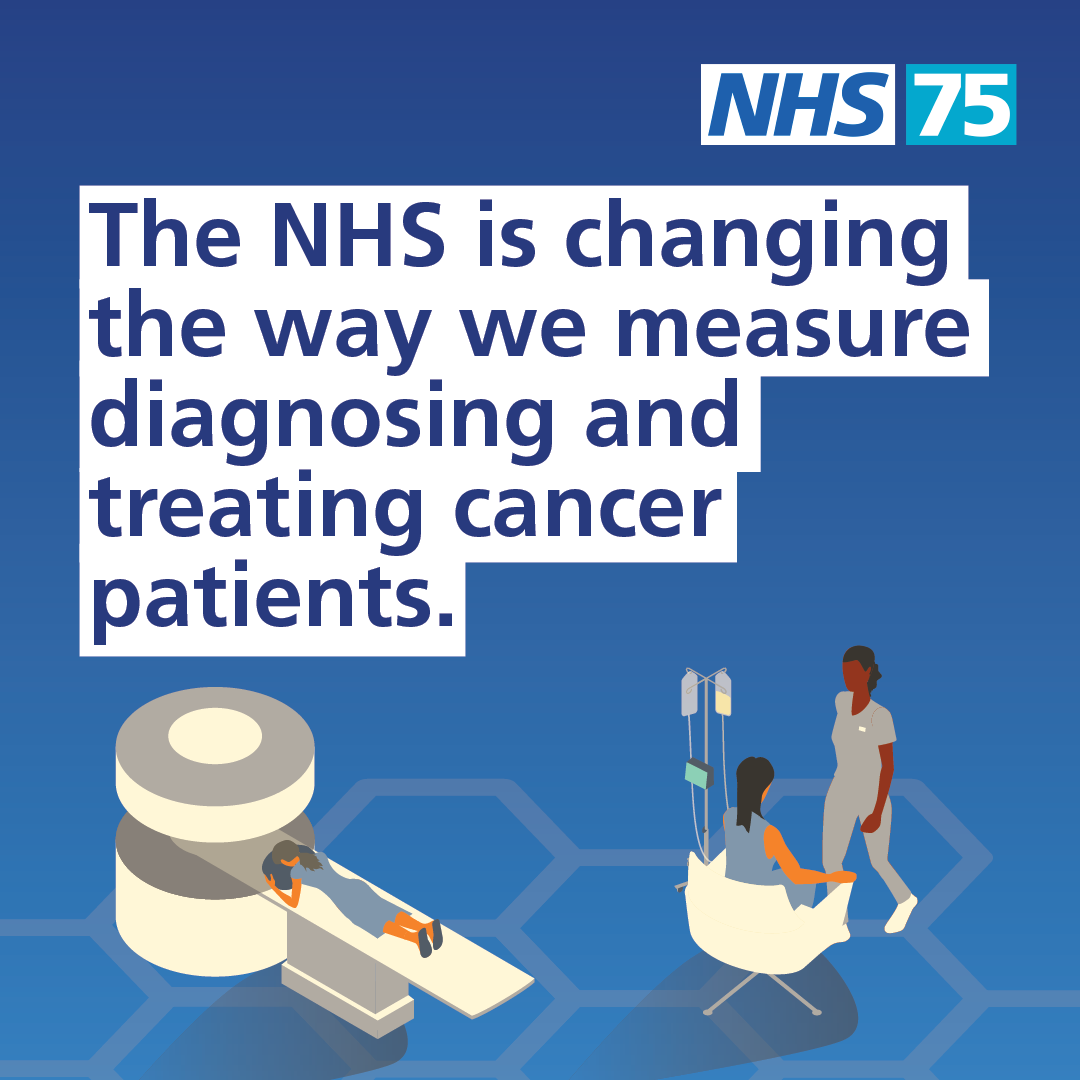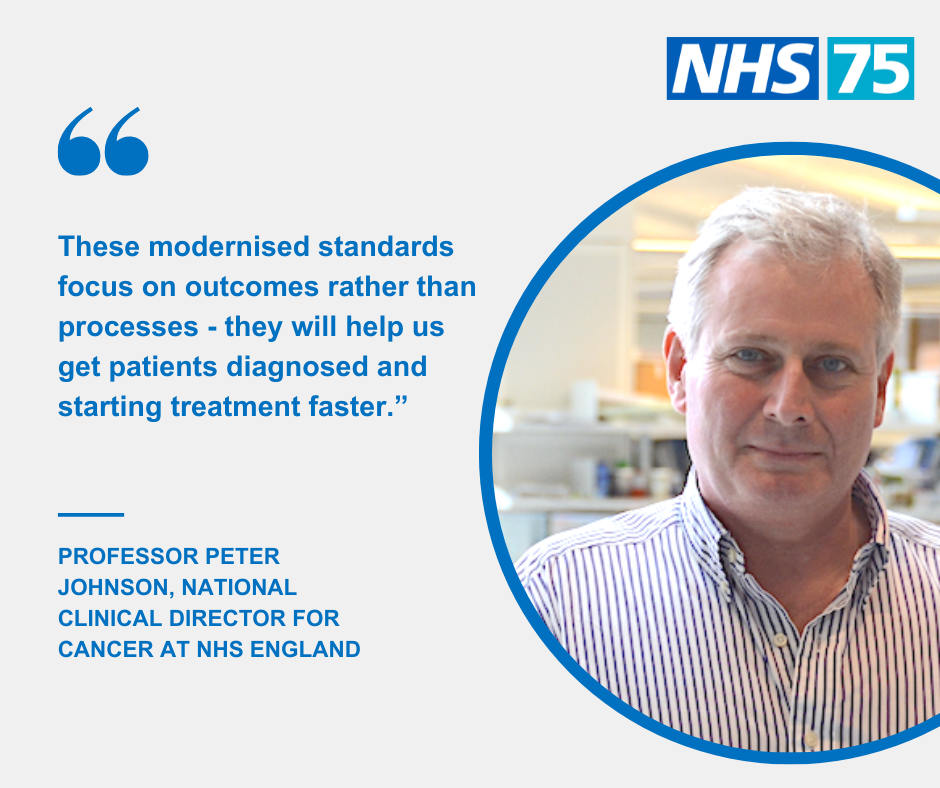 From 1 October 2023, the standard measuring waiting times for cancer diagnosis and treatment are being modernised and simplified. The changes have been developed by clinical experts and are supported by leading cancer charities.
From 1 October 2023, the standard measuring waiting times for cancer diagnosis and treatment are being modernised and simplified. The changes have been developed by clinical experts and are supported by leading cancer charities.
The NHS is moving from the 10 different standards to three:
- Faster Diagnosis Standard: a diagnosis or ruling out of cancer within 28 days of referral (set at 75%)
- 31-day treatment standard: commence treatment within 31 days of a decision to treat for all cancer patients (set at 96%)
- 62-day treatment standard: commence treatment within 62 days of being referred or consultant upgrade (set at 85%)
The main changes are:
- Removal of the Two Week Wait standard requiring a first appointment within two weeks
- Combining together the first and subsequent treatment 31-day standards to create one headline performance standard.
- Combining together the Urgent Suspected Cancer GP referral, Urgent Screening and Consultant Upgrade 62-day standards to create one headline performance standard for all patients.
Changes to targets:
The target for meeting the Faster Diagnosis Standard will be gradually increased, from 75% now to 80% by March 2026 and trusts have been asked to now prioritise improving performance against the new overarching 62-day standard, with an interim target of 70% by March 2024 put in place.
 What does this mean for GPs?
What does this mean for GPs?
Whilst the Two Week Wait standard will be removed, there will be no change to how GPs refer patients onto an Urgent Suspected Cancer pathway. The only change is the NHS will measure how well it is dealing with USC referrals by looking at the speed of actual diagnosis, not whether the patient has a first appointment within two weeks.
Data submitted by providers won’t change and, until language in the Cancer Waiting Times dataset is updated, expected in 2024/25, GPs should still use the “Priority type – Two Week Wait” to record performance.
More information is available here: NHS England Cancer Waiting Times


